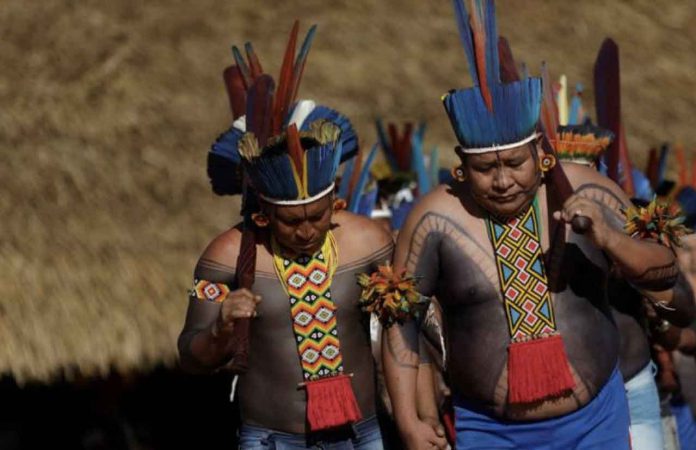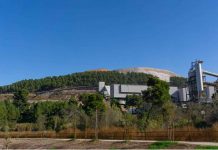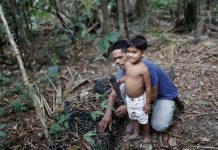
Bolsonaro has vowed to integrate Brazil’s indigenous people into the broader economy while tapping the commercial potential of their reservations
By Leonardo Benassatto
XINGU INDIGENOUS PARK, Brazil (Reuters) – Brazilian Indigenous leaders began a four-day tribal gathering in the Amazon on Tuesday to plan their opposition to far-right President Jair Bolsonaro’s push to open their reservations for commercial mining and agriculture.
Protected tribal lands have seen increasing invasions by illegal loggers and miners since Bolsonaro became president last year, leading to a rise in deforestation, fires and deadly clashes on several reservations.
Bolsonaro has vowed to integrate Brazil’s roughly 900,000 indigenous people into the broader economy and society while tapping the mineral riches and commercial farming potential of their 462 reservations.
Environmentalists say such a move will speed up the clearing of the Amazon jungle, the world’s largest tropical rainforest, which is considered vital for slowing global climate change.
“The riches Bolsonaro speaks of are white man’s riches, to buy cars and planes and ranches. Our riches are in the forest and the rivers here,” Kayapó tribe leader Megaron Txucarramãe told Reuters.
This week’s gathering at a village in the Xingu park was hosted by Kayapó chief Raoni Metuktire, who became a global reference for his environmental campaigning in the 1980s with musician Sting at his side.
“The year begins with this big meeting called by Raoni to draw up strategies to protect the Amazon from the threats, the criticism and the destruction that the Bolsonaro government is causing,” Sonia Guajajara, head of an umbrella group called the Articulation of the Indigenous Peoples of Brazil (APIB), told Reuters en route to Xingu in the frontier state of Mato Grosso.
Indigenous leaders wearing ceremonial body paint and headdresses of exotic bird feathers performed ritual dances at the center of Raoni’s village to kick off the meeting.
According to a draft seen by the O Globo newspaper, legislation drafted by the government would not just open up the reservations to mining, but also to oil and gas exploration, the building of new hydroelectric dams and commercial farms with genetically modified crops currently banned by law on tribal lands.
Indigenous communities would be consulted on economic projects, as stipulated in Brazil’s Constitution, but they would not have the power to veto projects decided by the government, O Globo reported on Saturday.
The Bolsonaro government, which declined to comment on the O Globo report, has said it is attending to tribal leaders seeking economic development who are ignored by high-profile indigenous advocates.
Guajajara said some tribes that are planting soy may favor the easing of environmental restrictions, but the majority oppose mining on their lands.
(Reporting by Leonardo Benassatto; Writing by Anthony Boadle; Editing by Marguerita Choy and Muralikumar Anantharaman)






